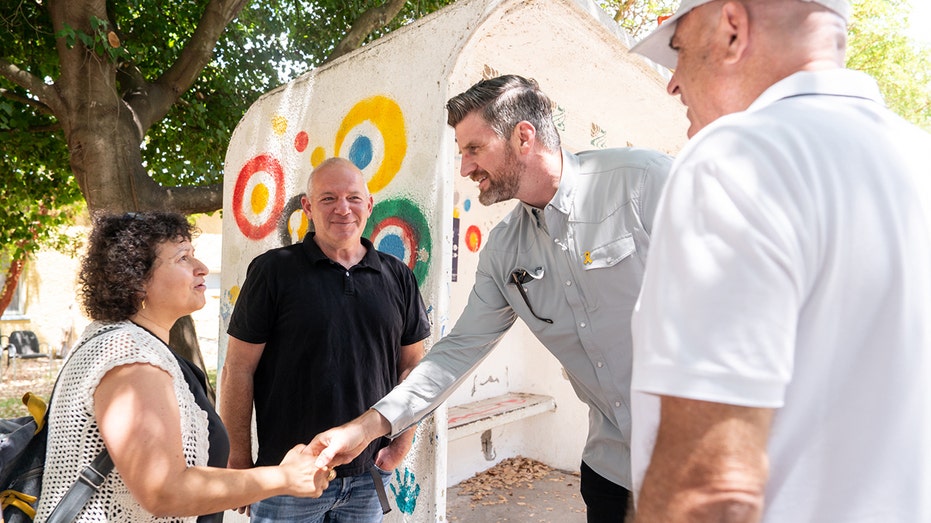Exclusive: Samaritan's Purse Provides Critical Relief as Refugees Face Crisis in War-Torn Israel
Edward Graham advocates for hope and aid as Samaritan’s Purse delivers armored ambulances and trauma centers in Israel's war zones.

As violence continues to threaten communities along Israel's northern and southern borders, a U.S.-based Christian humanitarian organization is stepping into the breach to provide critical aid and reassurance. Samaritan’s Purse is making its presence felt in some of the most dangerous areas of the country, delivering armored ambulances, constructing trauma centers, and establishing safe hubs where medical teams can operate amid constant threats.
Edward Graham, Chief Operating Officer of Samaritan’s Purse and grandson of Rev. Billy Graham, recently toured embattled Israeli communities. He met with survivors, first responders, and local leaders still reeling from attacks by Hezbollah in the north and Hamas in the south. "We go where other people don’t or won’t," Graham emphasized during his visit to Arab al-Aramshe, a northern village hit by missile and drone strikes. "Not just because we love you, but because God loves you."
Arab al-Aramshe remains scarred by recent violence, its community center destroyed and lives lost. Yet, hope is returning through new infrastructure: Samaritan’s Purse is building an ambulance station in nearby Shlomi and has supplied 42 armored ambulances nationwide, one already in service here. Ali Wahid, a senior medic in the region, expressed gratitude, noting that his team can now respond without the paralyzing fear of additional attacks. "We are not afraid to respond. But now we will feel safe when we respond," he said.
This support is part of a broader strategy to help residents return home and reclaim their lives from terror and upheaval. Moshe Davidovitz, mayor of the Matte Asher Regional Council, stressed the importance of restoring safety and confidence: "Thousands of people evacuated. They are refugees in their own country. While they were gone, they didn’t know what happened to their home, to their dogs, everything they left behind." The new ambulance stations and exchange points aim to reassure these displaced families that returning is possible and safe.
Moving southward, the devastation is even more pronounced. In Nir Oz, a kibbutz decimated during Hamas’ October 2024 attack, grief and destruction are everywhere. Posters commemorate victims and the missing; homes are burned-out shells. Yet, amid the pain, Graham pledged to build a new community clinic and trauma resilience center—a tangible sign of support and commitment to healing. Leaders in the Eshkol region, where nearly 250 residents died and many remain hostages, vow that their communities will recover. "We are determined to make sure that the tragedy won’t define us," said Mayor Michal Uziyahu. "This place will be filled with life again. The thing terrorists fear most isn’t tanks or fighter jets. It’s the sound of children laughing in our streets."
Samaritan’s Purse has committed to constructing two resilience centers—one in Eshkol, another in Merhavim—and two emergency medical stations near the Gaza border, where delays in medical response proved deadly last fall. The group is also installing 25 bomb shelters across high-risk areas, offering families a desperately needed sense of security as they rebuild.
Graham, moved by the resilience and forgiveness displayed by survivors, reflected on the extraordinary spirit he witnessed. "There’s been so much pain, murder and brokenness here," he remarked. "But I’ve talked to the survivors and asked if they carry hate. And they don’t. They still love their neighbors. They want peace… I ask everyone, please keep praying for Israel. They need your prayers and our support."
For families like Sara Kleiman and her young son, who returned to their northern home months after fleeing Hezbollah rockets, the efforts of Samaritan’s Purse represent more than immediate aid—they are a lifeline to recovery and a symbol of enduring hope. "We try not to think about what could happen," she admitted. "But we wanted to come home. This is our home."




